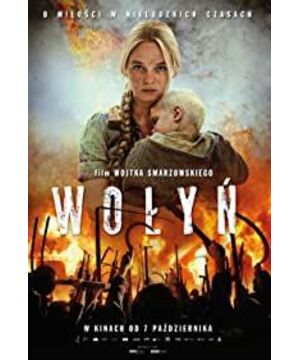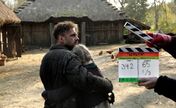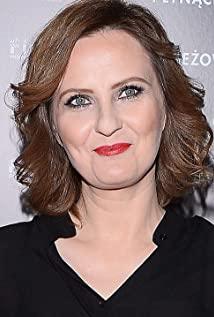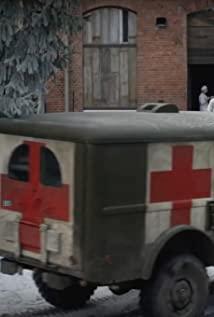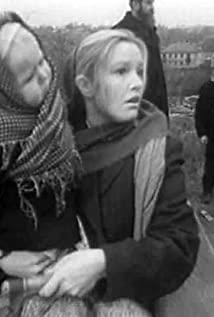The movie ended with the sharp rubbing of metal and whimpering wind music, all the subtitles were finished, the screen was pitch black, and the mood was plunged into boundless darkness. When I finally walked out of the theater exhausted, I decided to do a little homework and introduce this film to everyone: Poland's 2016 film "Warren". News Review: The Polish Parliament in July 2016 publicly called for confirmation of the mass genocide of Poles in the Warren region by Ukrainian ultra-nationalists and Ukrainian insurgents between 1939 and 1945, and fixed July 11 every year. For Warren Holocaust Remembrance Day. Strange that there is not a single Chinese report on the matter. Historical review: Before World War II, Warren belonged to the Second Polish Republic, but now belongs to Ukraine. It used to be a multi-ethnic area where Ukrainians, Jews, Poles, and Russians lived. Occupied by Germany during World War II in 1941, the Ukrainian Insurgent Army (ultra-nationalist) assisted the German Nazis in the massacre of 150,000 Jews. Ukrainian nationalists killed at least 100,000 Polish nationals in 1943-1944, including more than 10,000 Poles between July 11-12. Polish men, women, children and even infants were tortured to death by various vicious means. According to Polish historians, more than 4,000 Poles were rescued by Ukrainian people at that time, and at least 400 Ukrainians died trying to rescue Poles. From the historical changes of belonging, we can feel the twists and turns experienced by this area. This reminds me of the words of a sage: the borders of nation-states are drawn with blood. The film "Warren" was released in October 2016. Although it did not catch up with the date of public characterization by parliament, it was definitely the first time. The story focuses on Sophia, the youngest daughter of two daughters from an ordinary Polish family. The eldest daughter married a hard-working and kind-hearted Ukrainian guy. The film begins with the happy and lively wedding of the eldest daughter in 1939 full of ethnic tastes. It is revealed that Sophia is also in love with a Ukrainian boy. But after the wedding, the father relentlessly married his young daughter to a wealthy Polish widower for land and money. Warren then entered three historical periods of suffering. The first period: From 1939 to 1941, the Bolshevik red regime swept the Warren region, Sophia’s rich peasant husband was exiled, Sophia was rescued by her Ukrainian boyfriend, and her boyfriend was shot in the head by a Red Army officer. Sophia gave birth to a child at her boyfriend's house. The second period: From 1941 to 1943, the German army occupied all of Poland. The Jews in this area were sacked and slaughtered. The Ukrainian uprising army, which was originally anti-Nazi and anti-Soviet, fought against the Soviet Union. He became an accomplice of the Nazis, killed a large number of Jews, and also killed many Poles to relieve his personal hatred. The third period: In 1943-1944, after the German army retreated, the Ukrainian insurgents started a genocide against the Poles. The Orthodox church became a venue for agitation of extreme national emotions. He also raised his scythe and axe high and suddenly turned into a murderous madman. Sophia witnessed everyone around her being maimed to death by various perverted methods: beheading, skinning, dismemberment, burning...etc. In the end, Sophia fell on the road to escape. The film fully restores the real scenes in the background of the great era. The singing and dancing celebration scene at the beginning is very pleasant, and the subsequent massacre is cruel and bloody, extremely terrifying, and makes the scalp numb. The film also uses a large number of literary contrasts to express the author's metaphors, such as the eldest daughter's head on the threshold at the wedding, being chopped off with an ax to indicate that she is a woman, and finally she was dragged to the threshold with an axe. Heads chopped off; burnt stakes are played with at weddings, and Polish boys are later tied to stakes and burned to death: Sofia's boyfriend is shot by Red Army officers outside her home, while her son is born inside. And the biggest metaphor is Sophia's body: what started as a romantic devotion, later became a victim of a money transaction, then experienced an affair, was beaten, ravaged, and finally fell completely. The final scene of the film is quite poetic. Sophia is lying on the carriage, the Ukrainian boyfriend is driving the carriage, the child is snuggling by her boyfriend (indicate who the child is), and the carriage is gradually moving towards the sky accompanied by heart-piercing and sobbing and moving music. . The film restores a real history. The Warren Massacre, like the Katyn Massacre, was banned for more than half a century for well-known reasons. So the film opens with a quote from Polish scientist Jan Zalowski: The Eastern Poles were slaughtered twice, the first time with an axe, the second time they died in silence, the second time was worse, more than the first time. This is an indignant indictment of the blockade and silence of historical truth for more than 70 years for political reasons. The film uses screams and blood to tell us how fragile the integration of different beliefs and different peoples is, and how important it is to remember history for every step of mankind. It is despicable and shameful to bury the truth for political reasons. It is tantamount to killing people for the second time. This kind of brutal silence and distortion is a blasphemy to human civilization. There are indeed too many subtleties between races: different languages, different skin colors, different living habits, different cultures, different histories, different beliefs, and even different personalities, but one thing is the same: there is a demon behind human nature. If the gap is removed, it may be engulfed by the magic immediately. being human Sexual extinction, anyone, even brothers and sisters of the same clan and clan, may become fish and meat. No other nation knows this better than my Chinese nation. So what unleashes the magic? Perhaps it is desire, greed, jealousy, hatred, in short, the weakness of human nature. Maybe God didn't just mess up the language of the builders of Babel, but gave them more human weakness; it wasn't language that stopped humans from building the Tower of Babel, but the weakness of human nature that made people focus on grabbing , plunder and beware of being plundered, vindictive and revengeful. "Nationalism is the leprosy of mankind". This sentence was said by Einstein, because we have seen too much nationalism, so it is more accurate to add the word "extreme".
View more about Hatred reviews


